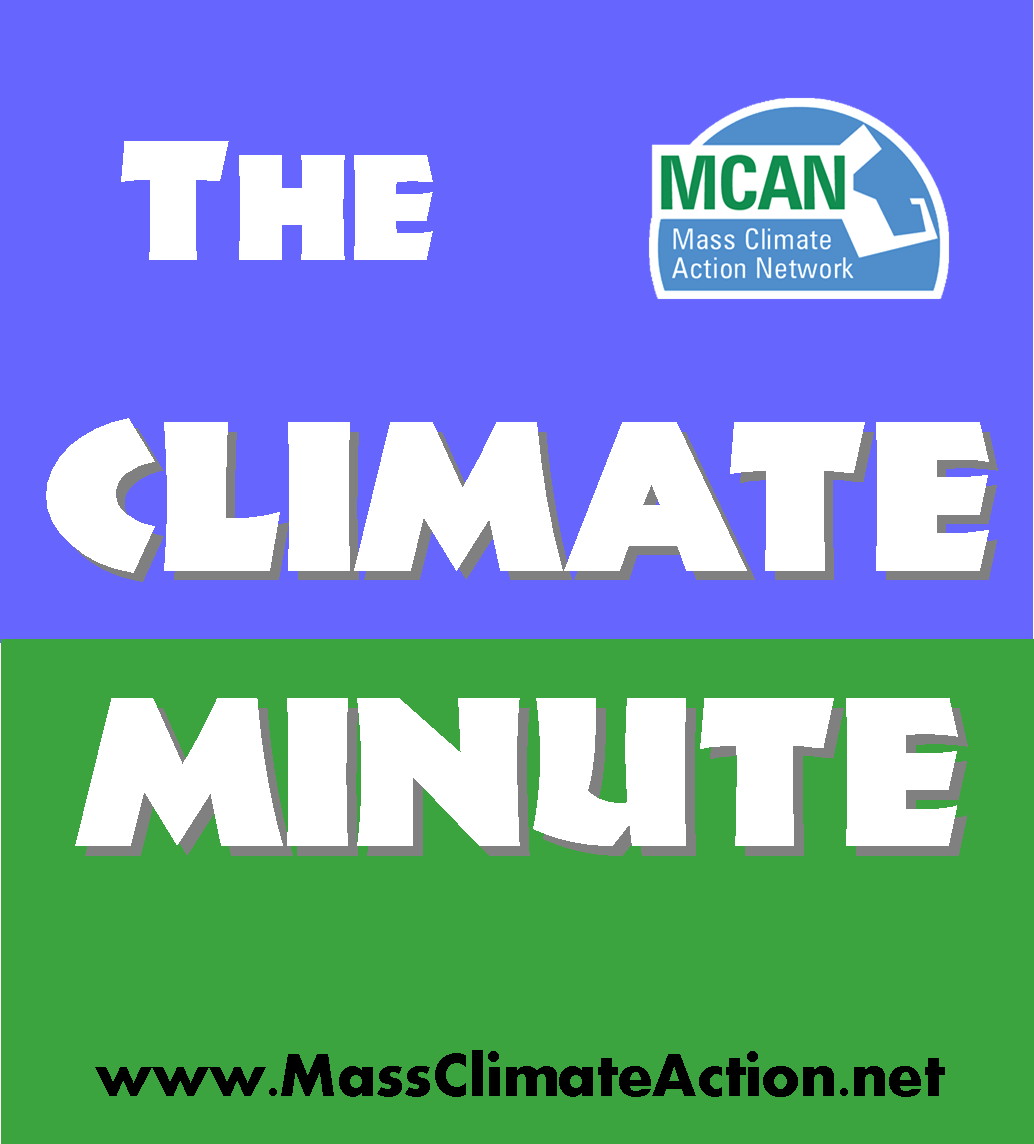

This week Ted flies solo without Rob, and not from the Pink and Orange coffeehouse, but has all the latest news and views on Climate Change nonetheless.
For the latest statement from the American Geophysical Union about human-casued climate change, go here. Ted also reads the statement at the end of the podcast. One of our favorite podcasters, Tom Bowman, has a good interview with Chris Hope and Peter Wadhams, an economist and oceanographer respectively, ab...
This week Ted flies solo without Rob, and not from the Pink and Orange coffeehouse, but has all the latest news and views on Climate Change nonetheless.
For the latest statement from the American Geophysical Union about human-casued climate change, go here. Ted also reads the statement at the end of the podcast.
One of our favorite podcasters, Tom Bowman, has a good interview with Chris Hope and Peter Wadhams, an economist and oceanographer respectively, about the possiblity of massive methane release over the next 10-15 years and the consequences of that potentiality.
The scariest part of the conversation is the idea that this tipping point may already be passed and there's not much we can do about it at this point.
Another of our recent new listens, The Energy Gang over at Greentech Media, discussed "Gaslands 2" and spoke with a reporter who has been following what has been happening on the ground (and beneath) in Pennsylvania. They also discussed the role of the US Department of State in exporting support of fracking overseas.
One of Ted's favorite themes is the role of art in helping mankind understand how to think about human events. The Civil War, westward migration, Cold war all gave us art. A few weeks ago we discussed the question of whether art responds to demand ( think social protest music) or the artist educates her audience.
At any rate, here's a good article about a recent spate of storm and weather inspired music.
There's also a good piece from Alex Ross, The New Yorker's music critic about John Luther Adam's 42-minute orchestral work Become Ocean, which is the latest of his “climate pieces.” Given its premiere on June 20 by the Seattle Symphony, the work is prefaced with the words: “As the polar ice melts and sea level rises, we humans find ourselves facing the prospect that once again we may quite literally become ocean.”
“We now see lightning and thunder in December, and we’ve seen winter come a full month later than usual, and spring arrive a full month earlier,” Adams said. “We hear red-winged blackbirds in the little marsh below our house, and that has never been a bird present in interior Alaska.”
In a similar vein, there's been some interesting writing lately on how to approach climate psychology. Many feel the most effective method is to create a positive narrative - not just inundate the target audience with facts and figures, but create "accessible narratives" that reinforce mankind's place within nature as a part of the whole web of creation.
Which is quite a heavy thought if you haven't had your morning coffee yet...
The idea is to create methods of reaction to climate change that do not lead to despair and burnout. Psychology Tomorrow (yup, that's right) has more on that here.
For much more on this discussion be sure to check out the podcast.
Well, the next big climate action in New England is the Energy Exodus, a march from coal to renewable power (from Brayton Point to Cape Wind) starting on August 28th. On that morning On August 28, 2013, a large group of New Englanders will converge in Fall River, MA, near the largest coal-fired plant in the region. There they will begin a 6-day march to Barnstable, MA, the seat of opposition to Cape Wind, the nation’s first off-shore wind project.
This historic event will dramatize the urgency with which we must turn away from fossil fuels and march toward a future full of sustainable jobs, clean air, healthy communities, and local, renewable energy. Along the way we will rally, sing, learn, hatch new plans, and make new friends. And by the end of our journey, we will have gained so much more than 70 miles; we will have built our movement stronger than it’s ever been before, and will have shown the way to the safe clean energy future that we so desperately need to ensure a liveable climate.
Marches have a long history of being part of protest movements. Ted talks about several historical marches, here's the cites so you can read more yourself:
1894, Coxey's Army: marched from Ohio to Washington, getting themselves arrested on the lawn of the US Capitol. They were calling for increased public employment through public works projects.
The Suffrage Hikes, 1912 - 1914. In the two more notable marches, suffragettes marched from New York City to Albany (1912) and New York City to Washington DC (1913).
January 1932, "Cox's Army," from Pennsylvania to Washington, D.C. Up to 25,000 unemployed people marched to the Capitol calling for increased public works to alleviate unemployment, as well as an increase in the inheritance tax up to 70%. It was the largest demonstration in Washington DC up to that date. (Later that year the Bonus Army of 43,000 marched on the Capitol -- and got themselves rousted by General Douglas McArthur...)
And as we've mention before, Gandhi led the "Salt March" across India in 1930 sparking a movement of non-violent civil disobedience that was a milestone of Indian independence.
(Interestingly, the Salt March was an action in direct opposition to British laws that granted the government a monopoly on salt which required Indians to buy salt only from the government -- as opposed to just making their own by evaporation, as they had been for years... What is it about the British and their stupid monopolies on basic necessities -- you would have thought they'd have learned something after that little incident with the tea in Boston in 1750...)
And of course the Selma to Montgomery marches in 1965 were a crucial point in this country's civil right journey.The route is memorialized as the Selma To Montgomery Voting Rights Trail, and is a U.S. National Historic Trail.
Listen to archive editions on the podcast page, or subscribe to us on iTunes, or find us on Stitcher.
As always, it’s been a pleasure sharing climate news and views with you. You know, you can subscribe to our iTunes feed and get our podcasts automatically here. Feel free to give us your thoughts on our Facebook page, or through old-fashioned email. You can even follow us on twitter @MassClimate, so there are lots of ways for you to listen and participate in the dialog.
Remember, for climate activities near you check out our MCAN climate action calendar. You can enter events as well as browse for interesting things to do.
When you are on the website, please contribute to MCAN. Every dollar you give will be doubled by a generous supporter.
You can find us on Facebook at https://www.facebook.com/MassClimateAction where you can listen to our show just be clicking on the icon. Please like our page AND like our show. This lets your friends know about us.
You can even follow us on twitter @MassClimate , so there are lots of ways for you to listen and participate in the dialog.
So we will close the way we always close, by saying that because we recognize the necessity of personal accountability for our actions, because we accept responsibility for building a durable future and because we believe it is a patriotic duty as citizens, we insist that the US put a price on carbon.
Good bye and see you next week…
Comments (3)
More Episodes
All Episodes>>Creat Yourt Podcast In Minutes
- Full-featured podcast site
- Unlimited storage and bandwidth
- Comprehensive podcast stats
- Distribute to Apple Podcasts, Spotify, and more
- Make money with your podcast
It is Free












